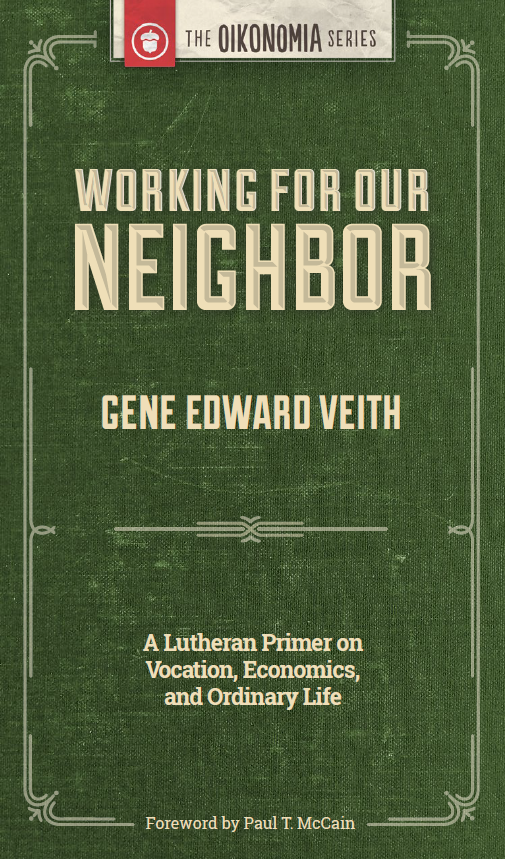 “If you are a manual laborer, you find that the Bible has been put into your workshop, into your hand, into your heart. It teaches and preaches how you should treat your neighbor.” –Martin Luther
“If you are a manual laborer, you find that the Bible has been put into your workshop, into your hand, into your heart. It teaches and preaches how you should treat your neighbor.” –Martin Luther
Christian’s Library Press has now released Working for Our Neighbor, Gene Veith’s Lutheran primer on vocation, economics, and ordinary life. The book joins Acton’s growing series of tradition-specific, faith-work primers, which also includes Baptist, Wesleyan, Pentecostal, and Reformed perspectives.
Veith, who describes Martin Luther as “the great theologian of vocation,” believes Luther’s approach is distinct in approaching vocation as a manifestation of “the spiritual and the physical, transcendence and incarnation, ascent and descent, faith and love, love of God and love of neighbor.” Luther’s theology “shows the interconnections of faith, work, and economics not just theoretically, but practically,” Veith writes, “and discloses how the ordinary, seemingly secular activities of everyday life are essential dimensions of Christian spirituality.”
Beginning with a hearty critique of Max Weber’s classic work, The Protestant Ethic and the Spirit of Capitalism, Veith argues that the Reformation’s influence on capitalism has long been mischaracterized and misunderstood. Although Weber properly identified a variety of psychological and cultural factors, his analysis of the theological and spiritual connections fell remarkably short.
For Weber, vocation was mostly a motivation for Christians to “find the assurance of their election in economic success.”
According to Veith, Luther would beg to differ:
Weber should have attended to Martin Luther, the true theologian of vocation…In the Lutheran tradition, the purpose of all vocations—which include our multiple callings in the family, the church, and the society, as well as the workplace—is to love and serve our neighbors. God himself providentially works through human beings in their diverse callings, and this is the outworking of his love for his creation.
According to Luther and the Lutherans, the economic order is a vast network of loving and serving, giving and receiving, in which God is present and in which Christians live out their faith. This does not mean that self-interest is not in play or that economic activity can be motivated sheerly by benevolence. The world is, indeed, governed by sin, as the fall contaminates our best efforts and best intentions. And yet, even though the multitude of different actors in the economic order are pursuing their own interests, God is making them all meet the needs of others. And Christians, as their faith becomes active in love, can participate with God in his love of the world.
Luther’s doctrine of vocation is profoundly ethical, and it discloses the ethical depths and possibilities of economic life.
Veith proceeds from here, connecting vocation to justification, good works, and Christian freedom, and demonstrating “how the Lutheran contribution to economics can transfigure ordinary life, and work, with the powerful presence of God.”
Purchase Working for Our Neighbor and add it to your Goodreads bookshelf today.
Check out the other titles in our series of tradition-specific primers on faith, work and economics. Each offers a distinct contribution to the subject, and when taken together provides a rich and coherent framework for Christian stewardship.
Subscribe to CLP’s mailing list or follow CLP on Facebook or Twitter for updates on forthcoming titles.

